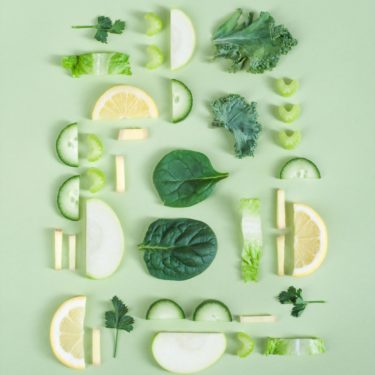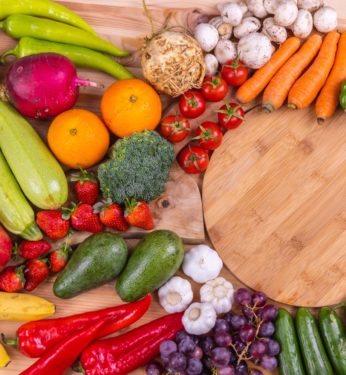 Last summer, Kathleen Stoeger was so weak because of two back-to-back urinary tract infections she couldn’t stand up. She was put on two different antibiotics because the first one didn’t work, but she kept waking up coughing.
Last summer, Kathleen Stoeger was so weak because of two back-to-back urinary tract infections she couldn’t stand up. She was put on two different antibiotics because the first one didn’t work, but she kept waking up coughing.
“One night, it got so bad I couldn’t breathe. I thought I was literally going to die. I thought it was my heart, but it wasn’t—it turned out to be acid reflux caused by the antibiotics.”
Stoeger is a very healthy, fit woman who regularly practices clean eating, yoga and looks much younger than her years, but she got an important lesson in digestion she will never forget that summer, because the antibiotics that healed her UTI quickly wiped out all the good bacteria in her gastrointestinal tract along with the bad. That led to an imbalance that produced so much gas it allowed stomach acid to rush back into her esophagus.
“I’m glad it happened now because it forced me to take a really good look at gut health,” said Stoeger. “My experience is, the gut is No.1. It’s everything.”
The traditional Hindu system of medicine called Ayurveda got it right over 5,000 years ago: healthy digestion is the cornerstone of health. In Ayurveda, it’s said that a man is only as old as his digestive fire. If he digests food well, he will never really age. But the moment the digestive system starts to falter, he begins aging and accumulating digestive, health and emotional issues.
Now, science is starting to back up that age-old wisdom with the discovery of a second “brain” called the enteric nervous system (ENS) hidden in the walls of the digestive system. The ENS is connected to the central nervous system like an informational superhighway dubbed the brain-gut axis that includes hundreds of millions of neurons busily communicating back and forth 24 hours a day. “The brain is tied to the gut like no other organ,” said Gastroenterologist Emeran Mayer in his book, “The Mind-Gut Connection.”
All the bacteria that lies in our gut is wired into that brain-gut axis, begging the question: is that sudden craving for ice cream our idea, or a seed planted by our gut microbes? It’s not a crazy question, because more than 100 trillion microbes live in the dark ecosystem of the human gut, and that gut community contains several million genes—far outnumbering the human genes in our cells and weirdly making us more microbial than human, Dr. Mayer explains.
Since 2007, when scientists announced plans for a Human Microbiome Project to catalog the micro-organisms living in our bodies, international interest in gut bacteria has grown by leaps and bounds. Scientists know those microbes produce vitamins, break down food, and secrete important neurochemicals like dopamine and serotonin that regulate mood. In fact, some scientists report as much as 95 percent of serotonin is warehoused in the gut. Now on-going research may tie disturbances in the gut microbiome to a wide variety of both physical and mental illnesses, like anxiety, depression, autism and Parkinson’s. Interestingly, researchers have noted that the majority of people with autism and schizophrenia also grapple with significant gastrointestinal issues, and that their micro-biomes are very different from control groups.
If you are still doubting the powerful mind-gut connection, here’s a frightening little experiment that suggests those little bugs in your gut could even affect personality, mood and behavior. A few years ago, 12 Canadian scientists swapped the intestinal contents of a breed of anxious, timid mice with a breed of adventurous, exploratory mice. Let’s call them the Woody Allen mice vs. the Lindsey Vonn mice. The anxious breed took forever to jump off an elevated platform, over-analyzing and hesitating for a long time before they finally took the leap. The adventurous breed leapt off immediately. But after the fecal transplant, the Woody Allen mice jumped off the platform much quicker than before, and the Lindsey Vonn mice took longer than they ever had before.
All this research suggests you really are what you eat, or at least what you poop.
“Every chemical in our bodies, every enzyme, all of it, comes from the food we are able to absorb,” said Dr. Anup Mulakaluri, a doctor of naturopathic medicine and Ayurvedic Wellness Counselor. “It’s a miracle to think that an apple comes into our bodies, and part of it becomes muscle, part of it supports brain tissue. It’s what makes us US.”
If you think you don’t have to worry about digestion if your bowel movements are normal, think again, Dr Mulakaluri says. Fatigue, anxiety, mental fog, and getting sick a lot are clues digestion is going awry. That last clue shouldn’t be a surprise, since there are more immune cells living in the gut wall than circulating in the blood or residing in bone marrow, scientists now know.
“Everybody can benefit from optimal digestion,” Mulakaluri said. “The fate of your bodies” system is being decided.
Katy, a 30-year-old Seattle graphic designer who finally cured the anxiety, depression and constipation she battled since the 8th grade knows this all too well. After more than 7 years on antidepressants, she wanted to try a different approach. “I just decided, ‘This is not how I want to live.”
She did it by taking several of the paths suggested by Ayurvedic medicine for healthy digestion thousands of years ago: healthy eating, daily meditation, practicing mindfulness in her nature walks every day. “I am anxiety-free now, and most of the time depression free, and I want the world to know,” she said. “I really do.”
Taking the following simple Ayurvedic steps might make the difference between living a healthy life into old age, or battling one health crisis after another.
#1-Eat your largest meal between 12 and 2 pm.
Studies have found that’s when our digestive system secretes the highest concentration of digestive juices.
#2-Move your body.
A 15-minute walk after each meal helps control blood sugar spikes. A short walk just before eating also helps process what you are about to eat.
#3-Eat simple, healthy, unprocessed meals.
Because processed foods and sugar hamper the growth of good bacteria and promote growth of the bad. Adding cultured ghee to food, eating fermented foods like sauerkraut, kimchee and unsweetened yogurt, and adding a probiotic also beefs up that army of good bacteria you need.
#4-Don’t overeat.
Cup your hands together in the shape of a bowl. Eat no more than two of these handfuls at every meal.
#5-Eat slowly and mindfully.
Leave 4 to 6 hours between meals to digest.
#6-Don’t eat when you’re sad or angry, and don’t eat on-the-go.
“The parasympathetic nervous system needs to be able to activate,” Mulakeluri explained. Breathing deeply helps activate it too.
#7-Drink effectively.
Try drinking at least a cup or two of warm water upon waking, and a large glass of warm or room temperature water about 20 minutes before meals. Sip on ginger tea through the day. It has been used for more than 2000 years to treat digestive issues. Just add one teaspoon of grated ginger root to a cup of hot water, or prepare a larger batch to sip from a thermos throughout the day. Mulakaluri also suggests drinking a half teaspoon of apple cider vinegar in a quarter cup of warm water 10 minutes before every meal to stimulate stomach acids.
#8-Focus on releasing negative emotions.
Research has shown stress can lead to chronic digestive issues, and after reading the research on the powerful mind-gut connection, it’s no wonder. For Karri Bruntz, author and Ayurvedic devotee, that can be as simple as learning basic nostril breathing techniques, not pushing yourself too hard when you don’t feel your best, and communicating how you feel. “Part of awareness is to speak your truth,” she said. “Don’t hold that stuff in.”
#9-Meditate on a daily basis.
Genetic changes can occur with regular meditation, including the processes controlling digestion. Even a few minutes can help, but 20 minutes in the morning and evening is best, according to The Chopra Center. “Meditation is key whether that is sitting quietly or even just being aware and present when doing the dishes,” said Bruntz. ”Just being mindful and aware during the day helps to lower stress and settle the system.”
#10-Follow a healthy and consistent daily routine…
Such as waking up at about the same time every day, going to bed at the same time, and eating your meals at the same time.
It’s not about perfection. Bruntz, author of the best-selling book, “Hide & Seek, Discover the Awe of Being You,” credits Ayurvedic practices with saving her health when her liver enzymes kept rising. She feels strongly that digestion is the very foundation of good health. “This has never been more clear to me than it is today. Eating foods that I know are nutrient dense, healthy, clean and unprocessed is best for my body. As I have tried to eat or add other foods that don’t fit that criteria, my digestion is immediately upset and I deal with bloating, cramping and lethargy.”
But she adds, “When I was first learning 15 years ago, I followed all the rules to the letter, like skin brushing. And oh my God, it was so exhausting!” Now she eats healthy, teaches yoga, meditates, and follows most of the principles, but she doesn’t slavishly adhere to each one all of the time. “They are all good for me, but I do them as I need them,” she said. “I listen to my body.”
As for Kathleen Stoeger, she healed her acid reflux in three months using only natural measures. She stopped eating four or five hours before bed, and made a real effort to eat foods rich in probiotics daily to re-populate her gut with healthy bacteria—she drank kombucha, raw unpasteurized apple cider vinegar, and ate fresh sauerkraut and unsweetened Greek yogurt. She also cut out sugar, tomatoes and oranges—which aggravated acid production—slept with her head elevated, and added alfalfa supplements and aloe vera juice to her diet.
“I was religious about it, because it really frightened me,” she said. “What I love about the Ayurveda approach is that it deals with the body as a whole—it doesn’t just treat one thing.”
Author:
Diana Woodin
YouVeda Wellness Contributor
References:
>Bercik, P., Denou, E. Collins, J., Jackson W., Lu, J., Jury, J., Deng, Y, Blennerhasset, P, Macri, J, McCoy, K.D., Verdu, E. F., Collins, S. The Intestinal microbiota affect central levels of brain-derived neurotropic factor and behavior in mice, Gastroenterology, 141: 599-609 (2011)
The Mind-Gut Connection by Emeran Mayer, MD (2016)
“Can the Bacteria in your Gut explain your mood?” New York Times Magazine by Peter Andrey Smith (June 23, 2015)
“When Gut Bacteria Change Brain Function,” The Atlantic, (June 24, 2015)
“Gastroenterology Issues in Schizophrenia: Why the Gut Matters” PMC, US National Library of Medicine, National Institutes of Health, citing a study in Curr Psychiatry Rep, May 2015





